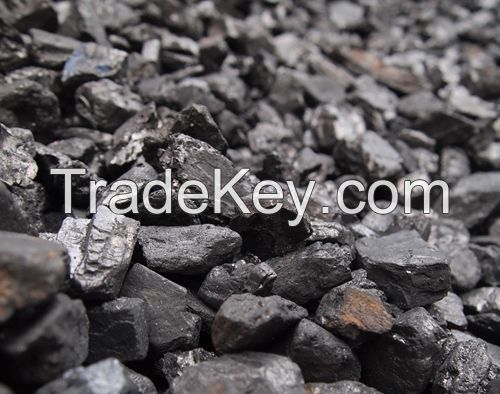
FOB Price
Obtener el precio más reciente50 ~ 80 / Metric Ton
|Minimum Order
Place of Origin:
-
Price for Minimum Order:
Minimum Order Quantity:
20 Metric Ton
Packaging Detail:
Jumbo Bag, Bulk
Delivery Time:
within 21 days
Supplying Ability:
10000 Metric Ton per Month
Payment Type:
T/T, L/C, Western Union, Money Gram
South Africa
We are supplier and miner of all types of Coal such as Anthracite Coal, Steam Coal, Thermal Coal, Coking Coal, Lignite..
What is Coal?
Coal isfossil fuel and black or brown rock that can be ignited and burned to produce energy in the form of heat, coal isthe altered remains of prehistoric vegetation that originally accumulated in swamps and peat bogs. Coal\'s chemical makeup is a complex mix of elements that include sulfur, carbon, oxygen, hydrogen and nitrogen, as well as small quantities of aluminum, zirconium and many other minerals.
The energy we get from coal today comes from the energy that plants absorbed from the sun millions of years ago. All living plants store solar energy through a process known as photosynthesis.
Coal Types:
There are several different types and ranks of coal. Coal is classified by degrees of hardness, Carbon content, moisture and heat content, The ranks of coals, from those with the least carbon and softest to those with the most carbon and hardest, are lignite, sub-bituminous, bituminous and anthracite, High-rank coals are high in carbon and therefore heat value, but low in hydrogen and oxygen. Low-rank coals are low in carbon but high in hydrogen and oxygen content.
Anthracite is hard coal, almost pure carbon, and containing the highest Btu content. (British thermal unit). Bituminous is soft coal, the most common type in the Iran, used to generate electricity and to make coke for the steel industry; Lignite is the softest coal, has the highest moisture content and is used for generating electricity and for conversion into synthetic gas; Subbituminous has a heating value between bituminous and lignite, and has low-faced carbon and high percentages of volatile matter and moisture.
Coal Usage (What is Coal used for?)
Coal is primarily used as asolid fuelto produce electricity, steel production, cement manufacturing and heat through combustion and as liquid fuel and gasification, Other Users of Coal include Paper manufactures, Alumina refineries , Chemical and pharmaceutical industries, refined coal tar is used in manufacture of chemicals , several chemical products will be produced from the by-products of coal such as creosote oil, naphthalene, phenol, and benzene also Ammonia gas recovered from coke ovens is used to manufacture ammonia salts, nitric acid and agricultural fertilizers. Thousands of different products have coal or coal by-products as components: soap, aspirins, solvents, dyes, plastics and fibers, such as rayon and nylon.
Coal liquefaction can be used to producesynthetic fuels equivalent togasoline ordieselalso Coal gasification can be used to producesyntheticgas, a mixture ofcarbon monoxide(CO) and hydrogen (H2) gas, Thissyntheticgas can then be converted into transportation fuels, such as gasoline and diesel, in the past coal was used to make town gas ( coal gas ) and piped to customers forillumination, heating, and cooking.
Thermal (Steam coal) is mainly used in power generation and Metallurgical (Coking coal) is mainly used in steel production.
